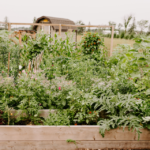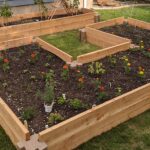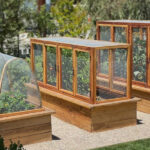Raised bed gardening is becoming an increasingly popular way for individuals to grow their own vegetables and flowers. This method of gardening involves planting in beds that are elevated off the ground, typically framed with wood, stone, or recycled materials. The benefits of raised bed gardening are plentiful, making it an attractive option for both experienced gardeners and beginners alike.
One of the key advantages of raised bed gardening is the improved soil quality. By adding compost, topsoil, and other organic matter to the raised beds, gardeners can create a nutrient-rich environment that promotes healthy plant growth. This enriched soil also helps with drainage, preventing water from pooling and causing root rot in plants. Additionally, raised beds can be easier to maintain and weed, as they are contained and accessible from all sides.
Raised bed gardening is also a great option for individuals with limited space or poor soil quality in their yard. By creating raised beds, gardeners can control the quality of the soil and maximize their growing space. This makes it possible to grow a wide variety of plants, including vegetables, herbs, and flowers, in a small area. Raised beds can also be built at a height that is comfortable for the gardener, reducing strain on the back and knees during planting and maintenance.
Another benefit of raised bed gardening is the ability to extend the growing season. Because raised beds warm up faster in the spring and retain heat better in the fall, they can allow gardeners to start planting earlier and keep crops producing longer into the year. This can be especially advantageous in cooler climates where the growing season is shorter. Additionally, raised beds can be covered with protective material, such as row covers or plastic sheeting, to provide additional insulation and protect plants from frost.
Raised bed gardening is also a great way to reduce the risk of pests and diseases in the garden. By using raised beds, gardeners can create a barrier between their plants and the surrounding soil, decreasing the likelihood of soil-borne diseases affecting the crops. Raised beds can also help to deter pests like slugs and snails, as they are less likely to climb into elevated beds. Additionally, raised beds can be covered with netting or cages to protect plants from birds and larger pests.
Overall, raised bed gardening offers a range of benefits for gardeners of all skill levels. From improved soil quality and drainage to extended growing seasons and pest control, raised beds provide an ideal environment for growing a successful garden. Whether you have limited space, poor soil quality, or just want to try a new gardening method, raised bed gardening is a practical and rewarding option to consider.
















